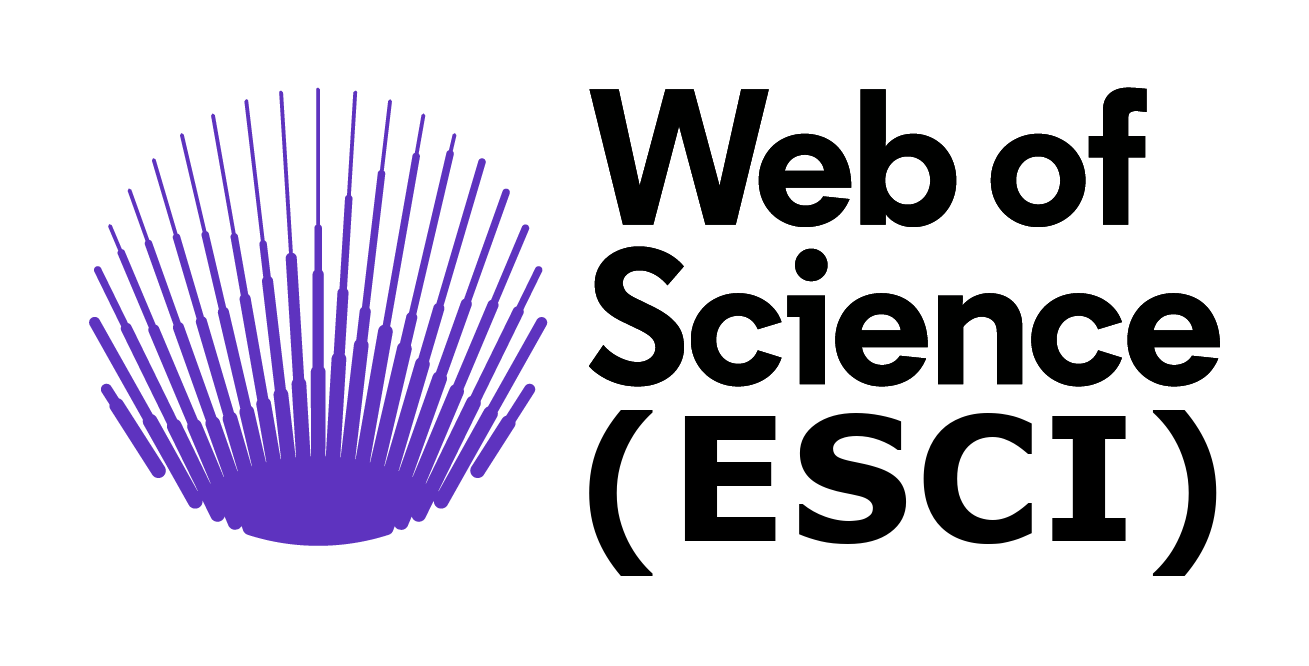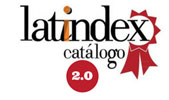Reconstruction of the Electric Consumption Pattern from Big Data using MapReduce Technique
DOI:
https://doi.org/10.29019/enfoqueute.v9n1.220Keywords:
big data, map reduce, intelligent electrical networkAbstract
The work presents the performance of the MapReduce technique to reconstruct the load curve from a previously stored amount of information coming from smart metering of electrical energy and currently considered as Big Data. The management of information in the stage of an intelligent electrical network considered as a System of Management of Measured Data or MDMS needs reducing the times with respect to the reports that are required in a certain moment for decision making in relation to the electrical demand response. Therefore, this paper proposes the use of MapReduce as a technique to obtain information of the load curve in a suitable time to obtain trends and statistics related to the residential electric pattern.
Downloads
References
Ahmed, H. (2014). Applying Big Data Analytics for Energy Efficiency. Master’s Programme in International Design Business Management Hussnain, 85.
Arian, M., Ameli, M., Soleimani, V., & Ghazalizadeh, S. Intelligent migration from smart metering to smart grid, 2 2011 IEEE Power Engineering and Automation Conference § (2011). IEEE. https://doi.org/10.1109/PEAM.2011.6134995
Campaña, M., Inga, E., & Hincapié, R. (2017). Optimal placement of universal data aggregation points for smart electric metering based on hybrid wireless. In CEUR Workshop Proceedings (Vol. 1950).
Chihoub, H., & Collet, C. (2016). A Scalability Comparison Study of Data Management Approaches for Smart Metering Systems. 2016 45th International Conference on Parallel Processing (ICPP), 474–483. https://doi.org/10.1109/ICPP.2016.61
Dai, J., Chai, B., Qiu, H., Zhang, B., & Jiang, W. (2016). Probabilistic graphical model based residential energy behavioral analysis on hybrid computing platform. 2016 China International Conference on Electricity Distribution (CICED), (Ciced), 1–4. https://doi.org/10.1109/CICED.2016.7576328
Fanibhare, V., & Dahake, V. (2016). SmartGrids: MapReduce framework using Hadoop. 3rd International Conference on Signal Processing and Integrated Networks, SPIN 2016, 400–405. https://doi.org/10.1109/SPIN.2016.7566727
Grolinger, K., Capretz, M. A. M., & Seewald, L. (2016). Energy consumption prediction with big data: Balancing prediction accuracy and computational resources. Proceedings - 2016 IEEE International Congress on Big Data, BigData Congress 2016, 157–164. https://doi.org/10.1109/BigDataCongress.2016.27
Grolinger, K., Hayes, M., Higashino, W. a., L’Heureux, A., Allison, D. S., & Capretz, M. a. M. (2014). Challenges for MapReduce in Big Data. Proc. of the SERVICES - IEEE World Congress on Services, (Services), 182–189. https://doi.org/10.1109/SERVICES.2014.41
Han, W., & Yang, X. (2016). Security, Privacy, and Anonymity in Computation, Communication, and Storage. Springer, 10066(March 2017), 1–11. https://doi.org/10.1007/978-3-319-49148-6
Inga-Ortega, E., Peralta-Sevilla, A., Hincapie, R. C., Amaya, F., & Tafur Monroy, I. (2015). Optimal dimensioning of FiWi networks over advanced metering infrastructure for the smart grid. 2015 IEEE PES Innovative Smart Grid Technologies Latin America (ISGT LATAM), 30–35. https://doi.org/10.1109/ISGT-LA.2015.7381125
Inga-ortega, J., Inga-ortega, E., & Gómez, C. (2017). Electrical Load Curve Reconstruction required for Demand Response using Compressed Sensing Techniques. IEEE PES Innovative Smart Grid Technologies Conference - Latin America (ISGT Latin America).
Inga, E., Céspedes, S., Hincapié, R., & Cárdenas, A. (2017). Scalable Route Map for Advanced Metering Infrastructure Based on Optimal Routing of Wireless Heterogeneous Networks. IEEE Wireless Communications, (April), 1–8. https://doi.org/10.1109/MWC.2017.1600255
Inga, E., & Hincapié, R. (2016). Matched Channel Allocation for Advanced Metering Infrastructure based on Cognitive Mobile Virtual Network Operator. Latin America Transactions, IEEE (Revista IEEE America Latina), 14(4), 1780–1785.
Inga, J., Inga, E., Hincapié, R., & Cristina, G. (2017). Optimal Planning for Deployment of FiWi Networks based on Hybrid Heuristic Process. Latin America Transactions, IEEE (Revista IEEE America Latina), 15(9), 1684–1690. https://doi.org/10.1109/TLA.2017.8015053
Inga, J., Inga, E., Hincapié, R., & Gómez, C. (2016). Evaluación de la Infraestructura de Medición y la Respuesta de la Demanda. Revista Técnica Energía, (12), 262–269.
Lang, W., & Patel, J. M. (2010). Energy management for MapReduce clusters. Proceedings of the VLDB Endowment, 3, 129–139. https://doi.org/10.14778/1920841.1920862
Lichtensteiger, B., Bjelajac, B., Müller, C., & Wietfeld, C. (2010). RF Mesh Systems for Smart Metering: System Architecture and Performance. Smart Grid Communications (SmartGridComm), 2010 First IEEE International Conference on, 379–384. https://doi.org/10.1109/SMARTGRID.2010.5622071
Liu, R., Kuo, C., Yang, C., Chen, S., & Liu, J. (2016). On Construction of an Energy Monitoring Service Using Big Data Technology for Smart Campus. 2016 7th International Conference on Cloud Computing and Big Data, 81–86. https://doi.org/10.1109/CCBD.2016.66
Liu, X., Golab, L., Golab, W., & Ilyas, I. F. (2015). Benchmarking Smart Meter Data Analytics. Proceedings of the 18th International Conference on Extending Database Technology, 385–396. https://doi.org/10.5441/002/edbt.2015.34
Mashayekhy, L., Mashayekhy, L., Member, S., Nejad, M. M., & Member, S. (2015). Energy-Aware Scheduling of MapReduce Jobs for Big Data Applications Energy-aware Scheduling of MapReduce Jobs for Big Data Applications. IEEE TRANSACTIONS ON PARALLEL AND DISTRIBUTED SYSTEMS, XX(September), 1–14. https://doi.org/10.1109/TPDS.2014.2358556
Munshi, A. A., & Mohamed, Y. A.-R. I. (2017). Big data framework for analytics in smart grids. Electric Power Systems Research, 151, 369–380. https://doi.org/10.1016/j.epsr.2017.06.006
Networks, U. P. (2017). LONDON DATASTORE. Retrieved from https://data.london.gov.uk/dataset?format=csv
Nghiem, P. P., & Figueira, S. M. (2016). Towards efficient resource provisioning in MapReduce. Journal of Parallel and Distributed Computing, 95, 29–41. https://doi.org/10.1016/j.jpdc.2016.04.001
Peralta, A., Inga, E., & Hincapié, R. (2015). FiWi Network Planning for Smart Metering Based on Multistage Stochastic Programming. Latin America Transactions, IEEE (Revista IEEE America Latina), 13(12), 3838–3843. https://doi.org/10.1109/TLA.2015.7404917
Peralta, A., Inga, E., & Hincapié, R. (2017). Optimal Scalability of FiWi Networks Based on Multistage Stochastic Programming and Policies. Journal of Optical Communications and Networking, 9(12), 1172. https://doi.org/10.1364/JOCN.9.001172
Selamat, A. (2016). Distributed Computing and Artificial Intelligence, 13th International Conference. (Springer, Ed.) (Springer, Vol. 474). Springer. https://doi.org/10.1007/978-3-319-40162-1
Shi, Y., Zhang, K., Cui, L., Liu, L., Zheng, Y., Zhang, S., & Yu, H. (2016). MapReduce short jobs optimization based on resource reuse. Microprocessors and Microsystems, 47, 178–187. https://doi.org/10.1016/j.micpro.2016.05.007
Sieverts, P., & Systems, E. (2015). Streamlining Smart Meter Data Analytics. Technical University Od Denmark.
Vaccaro, A., Troiano, L., Vaccaro, A., & Vitelli, M. C. (2016). On-line smart grids optimization by case-based reasoning on big data On-line Smart Grids Optimization by Case-Based Reasoning on Big Data. 2016 IEEE Workshop on Environmental, Energy, and Structural Monitoring Systems (EESMS), (September), 1–6. https://doi.org/10.1109/EESMS.2016.7504842
Wan, Z., Wang, G., Yang, Y., & Shi, S. (2014). SKM: Scalable Key Management for Advanced Metering Infrastructure in Smart Grids. IEEE Transactions on Industrial Electronics, 61(12), 7055–7066. https://doi.org/10.1109/TIE.2014.2331014
Wang, J. (2014). Frontiers in Algorithmics. (Springer, Ed.) (Springer). Springer. https://doi.org/10.1007/978-3-319-19647-3
Yildiz, O., Ibrahim, S., Phuong, T. A., & Antoniu, G. (2015). Chronos: Failure-aware scheduling in shared Hadoop clusters. Proceedings - 2015 IEEE International Conference on Big Data, IEEE Big Data 2015, 313–318. https://doi.org/10.1109/BigData.2015.7363770
Zhang, B. (2017). Analysis of residential electricity consumption behavior based on the improved Apriori algorithm. In C. P. L. : C. Press (Ed.), Electromechanical Control Technology and Transportation : Proceedings of the 2nd International Conference on Electromechanical Control Technology and Transportation (ICECTT 2017) (1st ed., pp. 145–149). Zhuhai, China: CRC Press LLC : CRC Press.
Zhou, J., Hu, R. Q., & Qian, Y. (2012). Scalable distributed communication architectures to support advanced metering infrastructure in smart grid. Parallel and Distributed Systems, IEEE Transactions on, 23(9), 1632–1642. https://doi.org/10.1109/TPDS.2012.53
Published
How to Cite
Issue
Section
License
The articles and research published by the UTE University are carried out under the Open Access regime in electronic format. This means that all content is freely available without charge to the user or his/her institution. Users are allowed to read, download, copy, distribute, print, search, or link to the full texts of the articles, or use them for any other lawful purpose, without asking prior permission from the publisher or the author. This is in accordance with the BOAI definition of open access. By submitting an article to any of the scientific journals of the UTE University, the author or authors accept these conditions.
The UTE applies the Creative Commons Attribution (CC-BY) license to articles in its scientific journals. Under this open access license, as an author you agree that anyone may reuse your article in whole or in part for any purpose, free of charge, including commercial purposes. Anyone can copy, distribute or reuse the content as long as the author and original source are correctly cited. This facilitates freedom of reuse and also ensures that content can be extracted without barriers for research needs.
This work is licensed under a Creative Commons Attribution 3.0 International (CC BY 3.0).
The Enfoque UTE journal guarantees and declares that authors always retain all copyrights and full publishing rights without restrictions [© The Author(s)]. Acknowledgment (BY): Any exploitation of the work is allowed, including a commercial purpose, as well as the creation of derivative works, the distribution of which is also allowed without any restriction.























 Enfoque UTE - Facultad de Ciencias de la Ingeniería e Industrias - Universidad UTE
Enfoque UTE - Facultad de Ciencias de la Ingeniería e Industrias - Universidad UTE